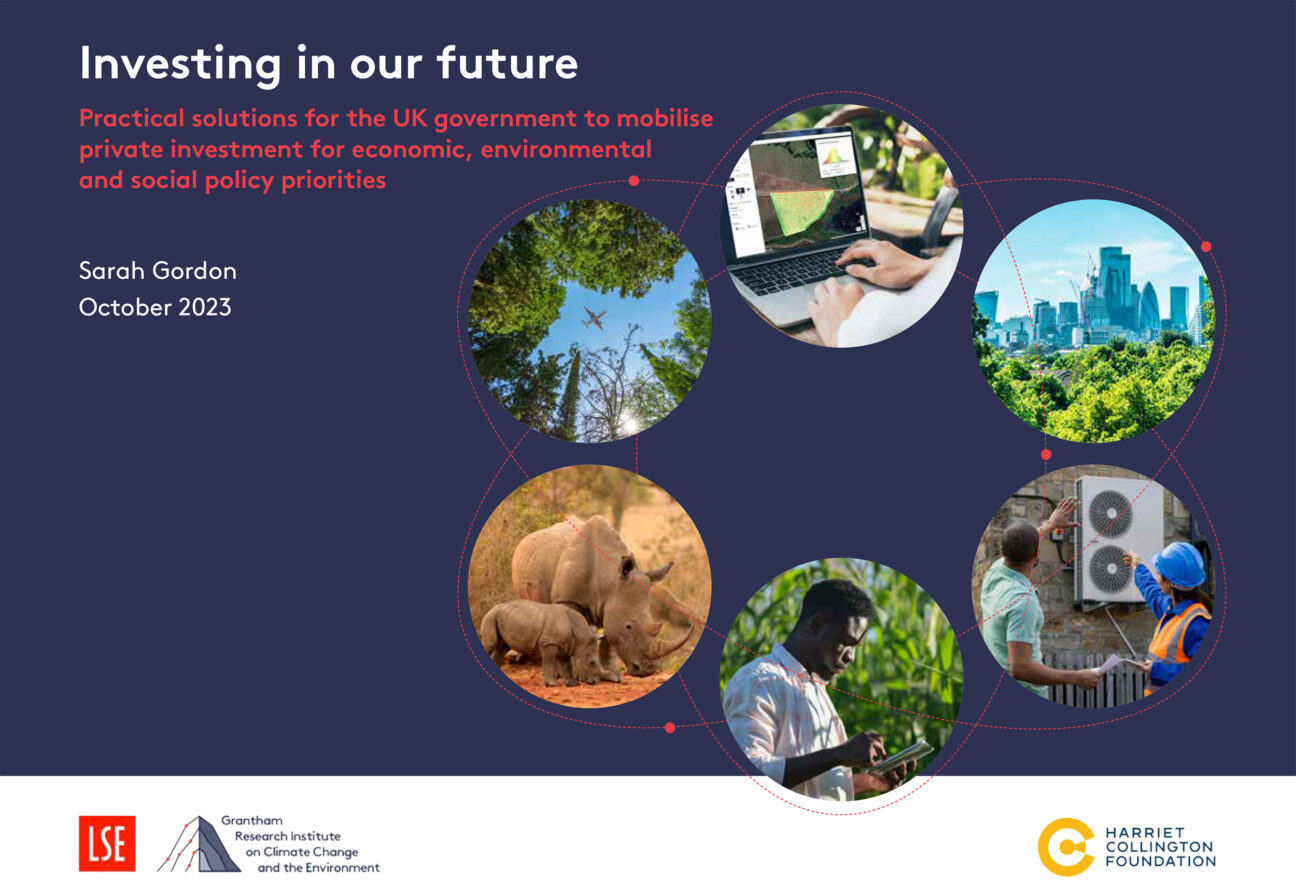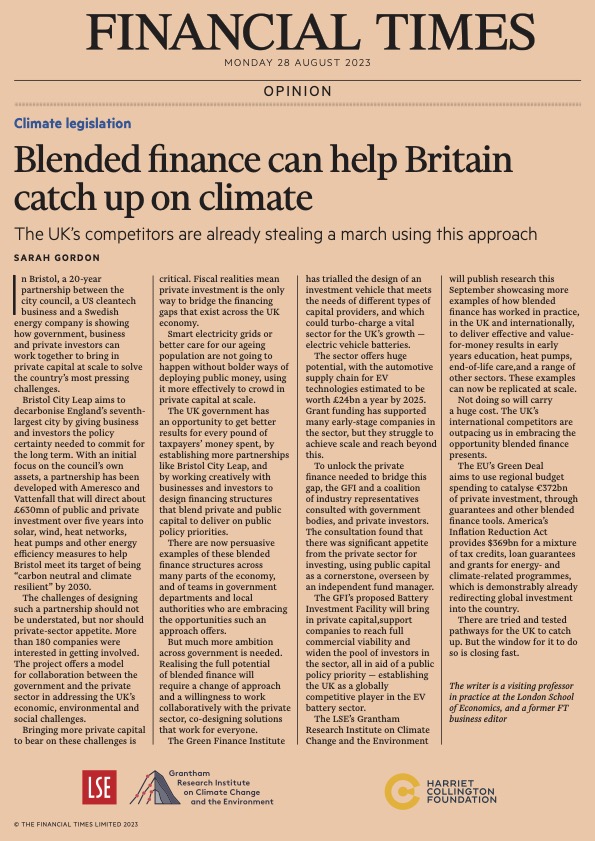A Q&A with Sarah Gordon, Principal Consultant at The Harriet Collington Foundation, on the research project she is leading with the LSE’s Grantham Research Institute on Climate Change and the Environment
About Sarah Gordon, Principal Consultant, The Harriet Collington Foundation
Sarah leads a research, engagement and advocacy project designed to deliver an ambitious programme for the UK government to mobilise private sector capital at scale for economic, environmental and social public policy priorities. The Harriet Collington Foundation is a delivery partner for this project, which is part of the sustainable finance programme at the London School of Economics’ Grantham Research Institute on Climate Change and the Environment. Read Sarah’s full bio here.
What is the research project?
The work seeks to take advantage of the window of opportunity to engage with the UK’s political parties, as they prepare their manifestos for a general election in 2024, and their programmes for government. These moments of potential ideological shift happen rarely, and this initiative seeks to provide a radical, innovative, yet practical pathway for the next government to seize the huge potential for working with private capital providers and managers, in ways previous administrations have been unable to.
The initial stage of this project culminated in the publication of a report Investing in our future: practical solutions for the UK government to mobilise private investment for economic, environmental and social priorities. The next phase of the project, until December 2024, involves an extensive engagement programme with current and potential future political decision-makers, the civil service, and the social and mainstream investment communities. The aim of this engagement programme is to land the messages and recommendations of Investing in our future, and to work through their practical implementation with the relevant teams in government and the investment community.
What are the objectives?
The work is highly collaborative, and seeks to represent the views of many organisations in the institutional investment and impact space, providing a unified and effective voice.
The outcomes sought are multiple: better-funded projects delivering more economic, social and environmental benefit in housing, health, education, energy and other economic sectors; an enabling policy and regulatory environment in which more capital can be effectively and accountably dedicated to public good; more robust bridges of trust and better ways-of-working between government, asset owners, the financial services sector, philanthropic funders, business and communities.
Most importantly, at a time of unusual pressure on the public purse, more private capital would be put to work, at scale, to deliver opportunities for people and communities in the UK.
What will be the focus?
The project has a particular focus on blended finance solutions, and the most effective ways for government funding to be used as catalytic capital to crowd in other sources of capital, whether private sector investment or philanthropic funding.
Enabling different participants in the investment chain to work together to deliver more positive outcomes is a key goal of the work, demonstrating how government can leverage taxpayer revenue into multiples of private capital for the benefit of people and communities across the UK.
Drawing on extensive discussion with policymakers, regulators, social investors and financial services players, the report offers a route-map for directing private capital towards a sustainable, prosperous and inclusive future.
Find out more

We launched the research project by publishing a joint report, Investing in our future, showing how government could unlock billions in private capital to meet public policy priorities in housing, net zero, education and more.

In Summer 2023, Sarah also wrote an article for the Financial Times, which referenced the research project while exploring the potential role of blended finance to help Britain catch up on climate.
